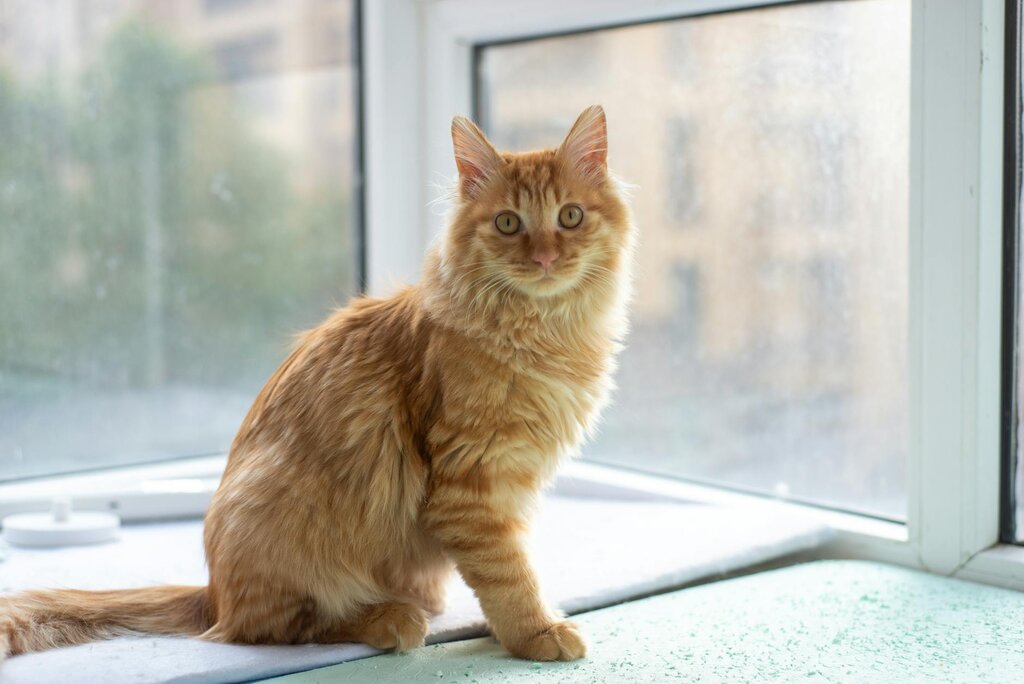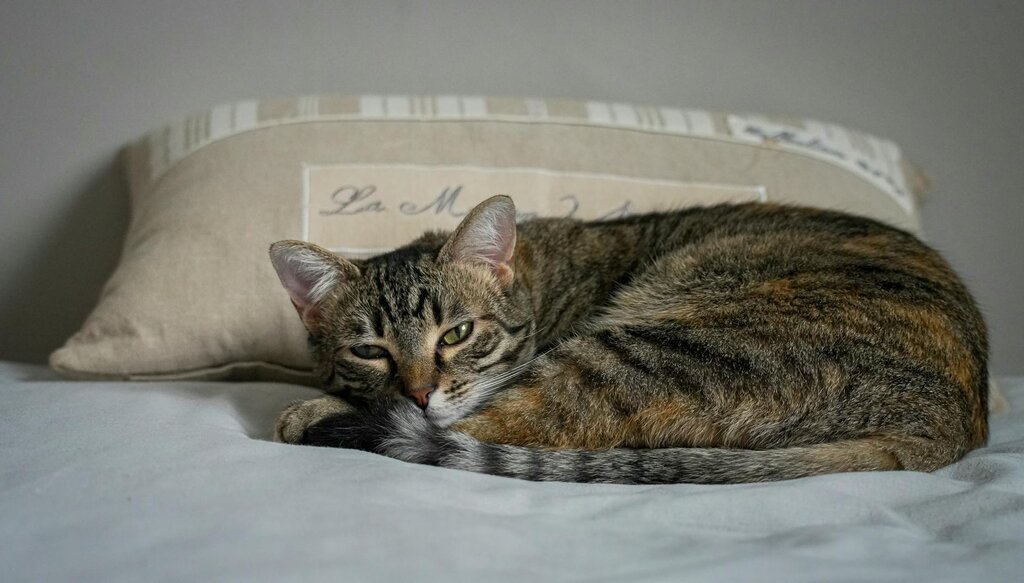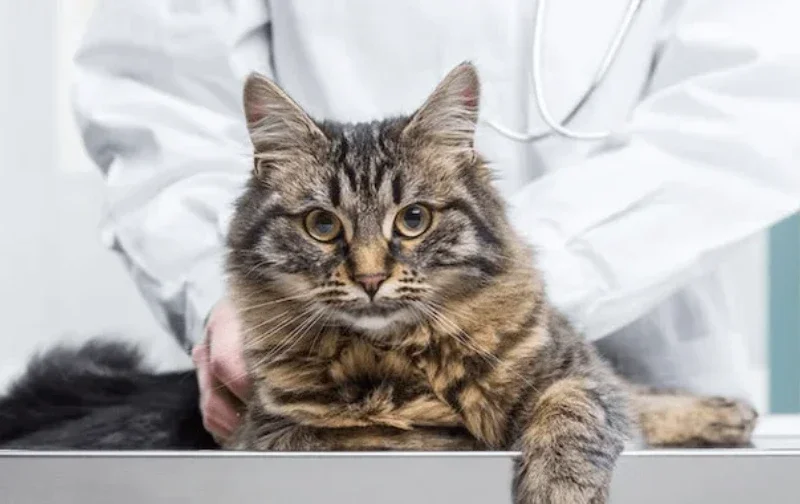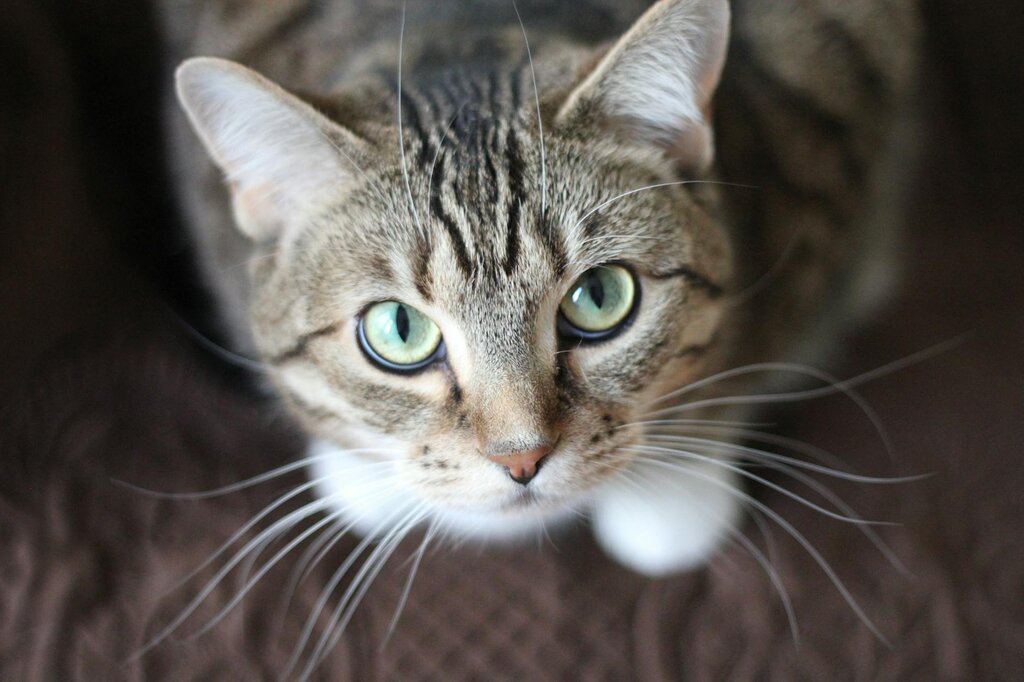Last Updated: 18/12/2025
Feline Asthma: Signs, Causes and Treatment
Is your cat wheezing or coughing? Feline asthma is a common respiratory condition triggered by allergens. Discover the causes, how vets diagnose the condition, and actionable tips for managing your cat's health with medication and low-dust litter.
Author: Dr Tiffany Barnsdale BVSc (Hons)
Reading Time: 3 minutes - short read
Discovering that your cat has asthma can be a worrying experience for any pet parent. Much like the condition in humans, feline asthma involves chronic inflammation of the airways, often triggered by everyday irritants in the home. While it can cause distressing symptoms like wheezing and laboured breathing, the good news is that with the right management plan, most cats live long, active, and happy lives. This guide explores how to identify the triggers in your home and the steps you can take to support your cat's respiratory health.
What is feline asthma?

Feline or cat asthma is chronic inflammation of the airways. It is very similar to asthma in humans and believed to also be caused by inhaled allergens that then stimulate the cat's immune system.
The immune response causes narrowing of the airways through swelling, constriction and irritation making it very difficult for the cat to breathe.
Common triggers and causes of asthma in cats
Some common allergens that are seen to trigger feline asthma include:
- Cat litter
- Mould
- Pollen
- Household chemicals
- Essential oil diffusers
- Cigarette smoke
- Perfume
Signs of asthma in cats

Symptoms of feline asthma can range in severity and include:
- Difficulty breathing
- Coughing
- Wheezing
- Shortness of breath (or rapid breathing)
- Open mouth breathing
- Fatigue/lethargy
How do vets diagnose asthma in cats?

Unfortunately, there is no single test to diagnose feline asthma (which can be very frustrating)! Your vet will do a number of tests to rule out other conditions which cause similar symptoms, like feline heartworm, lungworm, foreign bodies and respiratory infections.
Some tests your vet may do include:
- Listening to your cat's chest with a stethoscope
- Taking an x-ray of your cat's lungs
- Taking blood samples to look for infection, inflammation or allergies
- Faecal exam
It may also be helpful for your vet if you can get a video of your cat's symptoms such as an episode of coughing before taking them in for their examination.
Management and treatment for feline asthma

Cure of feline asthma rarely occurs, so treatment is used to manage symptoms and improve quality of life. Management of feline asthma usually involves combining a few of the options below depending on the severity of symptoms:
Corticosteroids
Corticosteroids will help to reduce inflammation in the airways. Inhaled corticosteroids are the most effective as they directly target the airways, although they are also available in oral and injectable forms.
Bronchodilators
Bronchodilators help to open the airways and improve the flow of air in and out of the lungs. These are also usually given in an inhaled form.
Avoid or remove triggers
It is important to figure out what is causing or aggravating the breathing problems for your cat and remove or reduce access to them. Things to try include low-dust cat litter, using natural cleaning products and avoiding contact with cigarette smoke.
FAQs
While a diagnosis of feline asthma requires lifelong management, it is a very treatable condition. By working closely with a veterinarian to find the right balance of medication and environmental changes - such as switching to low-dust litter - you can significantly improve your cat's quality of life. Monitoring your pet’s breathing and staying consistent with their care ensures they remain comfortable and playful for years to come.
Articles recommended for you
Is your cat showing classic signs of the sniffles - like sneezing, gunky eyes, and a snuffly nose? Learn everything you need to know about cat flu: its symptoms, causes, treatment, and how to prevent it.
Feeling overwhelmed by cat litter choices? Our vet breaks down everything you need to know. Compare clay, crystal, and natural litters, and find the 'purrfect' match for your cat, whether they're a playful kitten or a wise senior.
Bringing home a new kitten is exciting, but can feel overwhelming! Our complete guide has everything a new parent needs to know.
Is your cat stressed or anxious? Learn the common signs, causes, and treatments available to help manage and relieve your feline friend's anxiety.
Take control of your cat's dental health with our expert vet guide. We cover everything from brushing techniques to the best dental diets and treats.
Does your pet suffer from anxiety? Check out our Vet-guide for treatment options to help your pet.
History
Our experts continually monitor the health and wellness space and we update our articles when new information becomes available.
Thu 18 Dec 2025
Edited by Dr Gillian Hill BVSc (Hons)Dr Tiffany Barnsdale BVSc (Hons)
Contributing Author, BVSc (Hons)
Dr Tiffany Barnsdale is one of Pet Circle's qualified veterinarians. She graduated from the University of Queensland in 2017 with a Bachelor of Veterinary Science with honours. After graduating, Dr Tiffany moved to New Zealand where she worked in a mixed animal practice in the lower South Island. Tiffany, her young family and their 2 dogs moved back to Brisbane at the start of 2021! She has a special interest in bovine medicine and surgery, small animal preventative medicine and nutrition.

